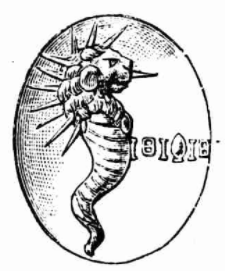Although life is an affair of light and shadows, we never accept it as such. We are always reaching towards the light and the high peaks. From childhood, through early religious and academic training, we are given values which correspond only to an ideal world. The shadowy side of real life is ignored, and Western Christianity provides us with nothing which can be used to interpret it. Thus the young men of the West are unable to deal with the mixture of light and shadow of which life really consists; they have no way of linking the facts of existence to their preconceived notions of absolutes. The links connecting life with universal symbols are therefore broken, and disintegration sets in. In the Orient, and especially in India, the situation is very different. There, an ancient civilization based on Nature accepts a cosmos of multifaceted gods; and thus the Easterner can realize the simultaneous existence of light and shadow and of good and evil. Absolutes do not exist, and if God is thus disarmed, so is the devil. But the price of such an understanding is a direct tribute to Nature itself. Consequently, the Hindu finds himself less individualized than the Westerner; he is little more than a part of nature, one element in the collective soul. The question which the Western Christian now has to face is whether, without losing his individuality, he can accept the coexistence of light and shadow and of God and the devil. To do so, he will have to discover the God who was Christian before the personalized Christ and who can continue in a viable form after him. Such a deity would be the Christ of Atlantis, who once existed publicly, and who still continues to exist - even though submerged under the deep waters of our present civilization. Such a god would also be Abraxas, who is God and the devil at the same time. The first time I heard of Abraxas by name was in Demian, but I had really known about him from my childhood days. I had sensed his existence in the heart of the Cordillera of the Andes and in the unfathomable depths of the Pacific Ocean which beats against our coasts. This ignis fatuus, the flames of heaven and hell which exist in him, flickered even in the foam of these waves. Abraxas is a Gnostic god who existed long before Christ. He may be equated, too, with the Christ of Atlantis, and is known by other names by the Aborigines of the Americas, amongst them the Indians who inhabited my country. Hermann Hesse speaks of him in this way: Contemplate the fire, contemplate the clouds, and when omens appear and voices begin to sound in your soul, abandon yourself to them without wondering beforehand whether it seems convenient or good to do so. If you hesitate, you will spoil your own being, you will become little more than the bourgeois façade which encloses you, and you will become a fossil. Our god is named Abraxas, and he is both god and the devil at the same time. You will find in him both the world of light and of shadows. Abraxas is not opposed to any of your thoughts nor to any of your dreams, but he will abandon you if you become normal and unapproachable. He will abandon you and look for another vessel in which to cook his thoughts. The modern Christian and the Western world as a whole have now reached a point of crisis, and the choices open seem less than attractive. We neither want one of those apocalyptic catastrophes which have so disfigured our past history, nor do we want the dehumanizing path of the Orient, which would result in an irremediable lowering of our standards. Perhaps, then, the only possibility that remains is Abraxas; that is to say, a projection of our souls both outwards and inwards, both to the light and to the deep shadows of our biographical roots, in hopes of finding in the combination of the two the pure archetype. This pure archetype would be the authentic image of the god which is within ourselves and which has been sunk for so long, like Atlantis, under the waters of our consciousness. Thus Abraxas would also come to mean Total Man.
From C.G. Jung and Hermann Hesse by Miguel Serrano




No comments:
Post a Comment